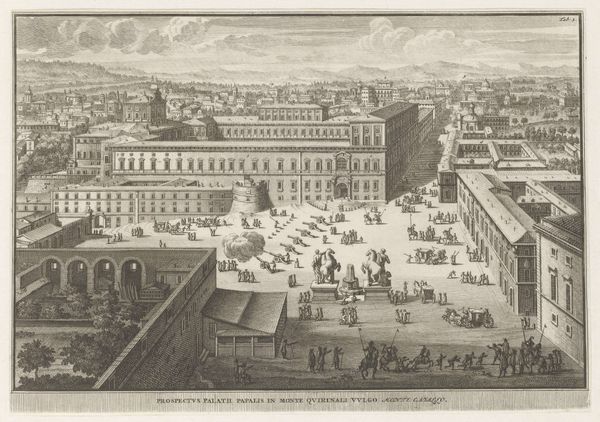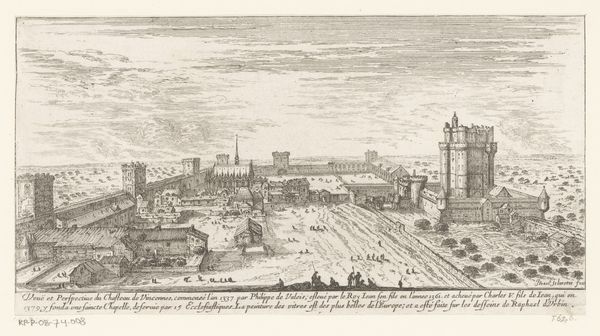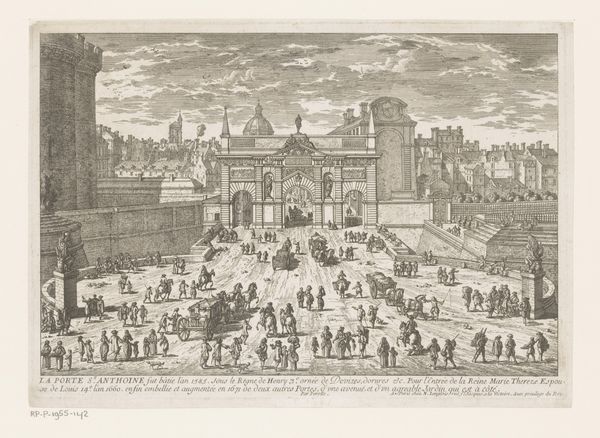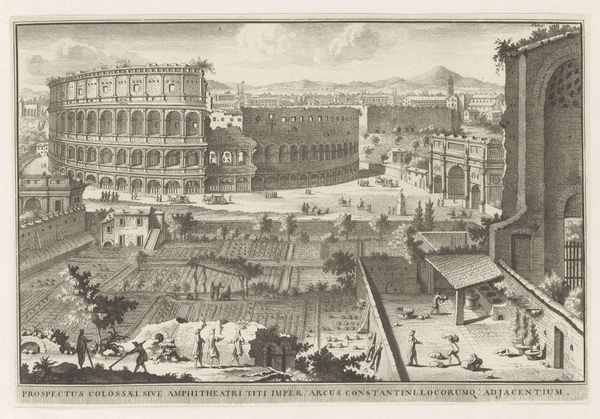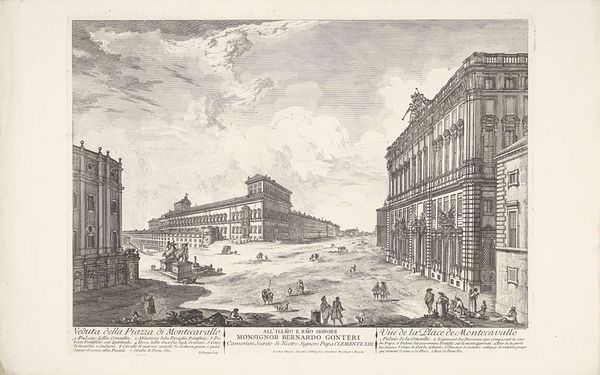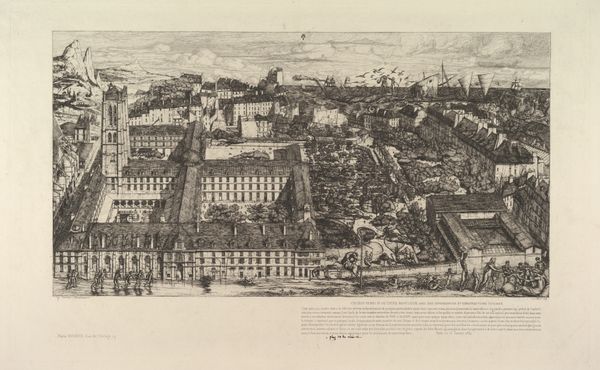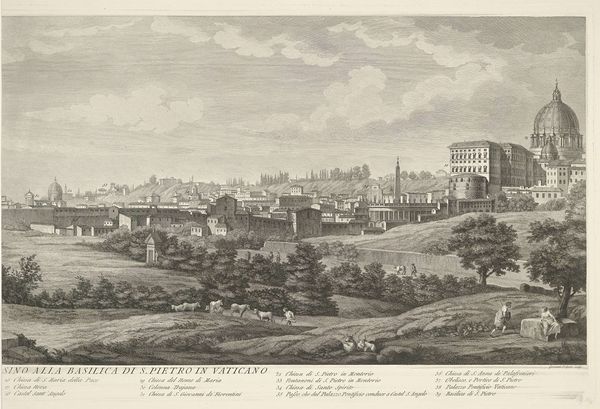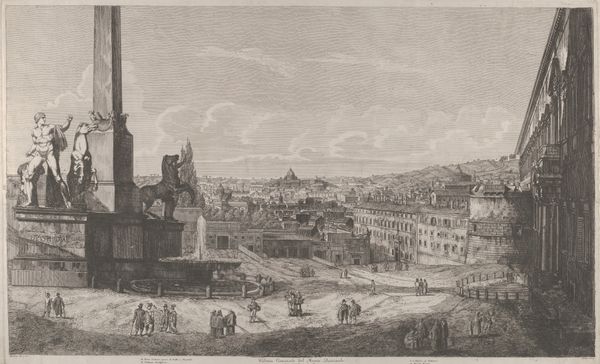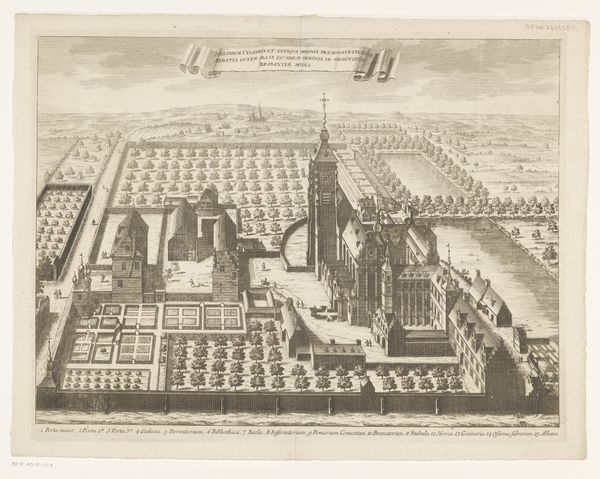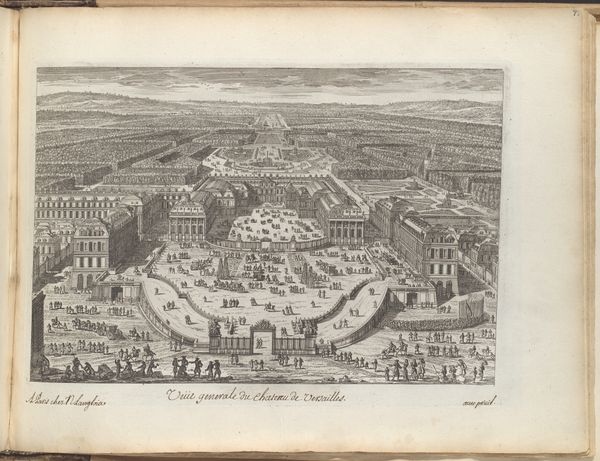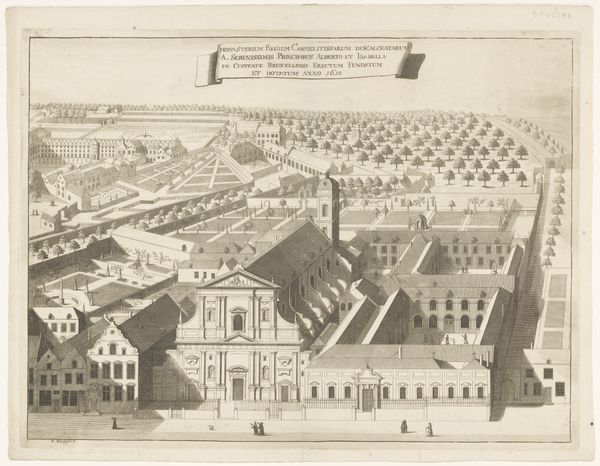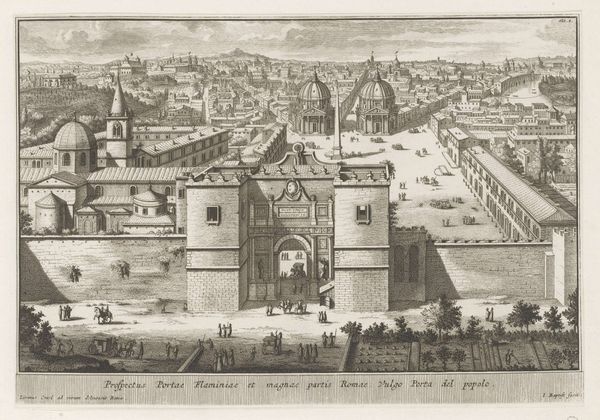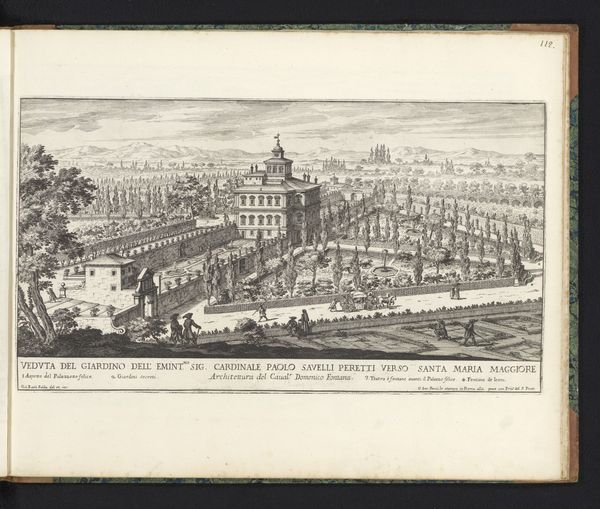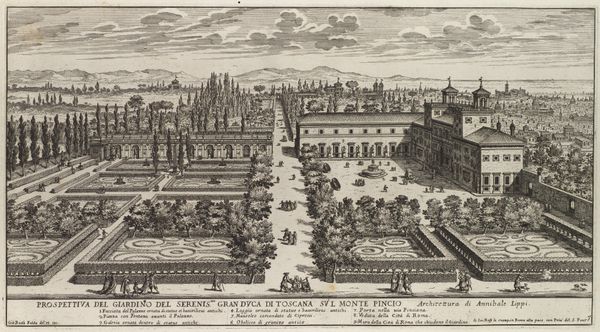
print, etching, engraving
#
baroque
# print
#
etching
#
cityscape
#
history-painting
#
italian-renaissance
#
engraving
Dimensions: height 225 mm, width 326 mm
Copyright: Rijks Museum: Open Domain
Curator: Looking at Jacobus Baptist’s "Forum Romanum te Rome," an etching and engraving from 1729, I'm struck by the way the artist uses precise lines to capture this panorama of Roman history. It’s currently housed in the Rijksmuseum. Editor: There’s something profoundly melancholic about this print. The meticulous depiction of architectural ruins interwoven with scenes of contemporary life… it’s like witnessing layers of history coexisting, with inevitable decay as a constant. Curator: Indeed. Baptist is quite skilled at evoking both the grandeur and the fragility of Rome through contrasting symbols. See how the meticulously detailed domes and arches reference Baroque splendor, but are set against these crumbled, fragmented remains of antiquity? The past constantly haunts the present here. Editor: Absolutely. And it makes me consider who has access to this history. The people milling about in the foreground, seemingly going about their daily lives - are they conscious of the historical weight beneath their feet? Or is this past reserved for the privileged viewer who can identify and interpret these ruins? Curator: A key element is surely the title itself: "Prospectus Fori Romani, Aedificiorum Antiquorum Ruinis Celeberrimi Vulgo Campo Vaccino". The inclusion of both Latin and the common tongue already indicates a reaching out to various audiences, intertwining classical ideals and everyday existence. The Forum’s ruin and presence, for example, become emblems of collective cultural memory. Editor: That connection of language resonates with a broader struggle for representation. How does Baptist's depiction of ruins reinforce or challenge the power dynamics between the ancient elite and the common people? It feels almost like a cautionary tale of power inevitably fading, and how only physical reminders are truly everlasting. Curator: Perhaps it reflects that even grand narratives eventually dissolve into fragments and need perpetual reinterpretation by later generations. But within those remnants lie enduring ideals, influencing civic identity and architectural innovation long after the Republic faded. Editor: I agree. The print underscores the complexity of history as a tangible, layered landscape of power and memory, both inclusive and exclusive. Thanks to the skill of Jacobus Baptist, the symbolism speaks volumes across the ages, even in its muted grey palette. Curator: Ultimately, Baptist provides a visual elegy, reflecting how classical foundations, both solid and broken, are ceaselessly woven into the social fabric. Editor: Yes, a conversation between past ideals and ever-present societal contexts that still resonate today.
Comments
No comments
Be the first to comment and join the conversation on the ultimate creative platform.
